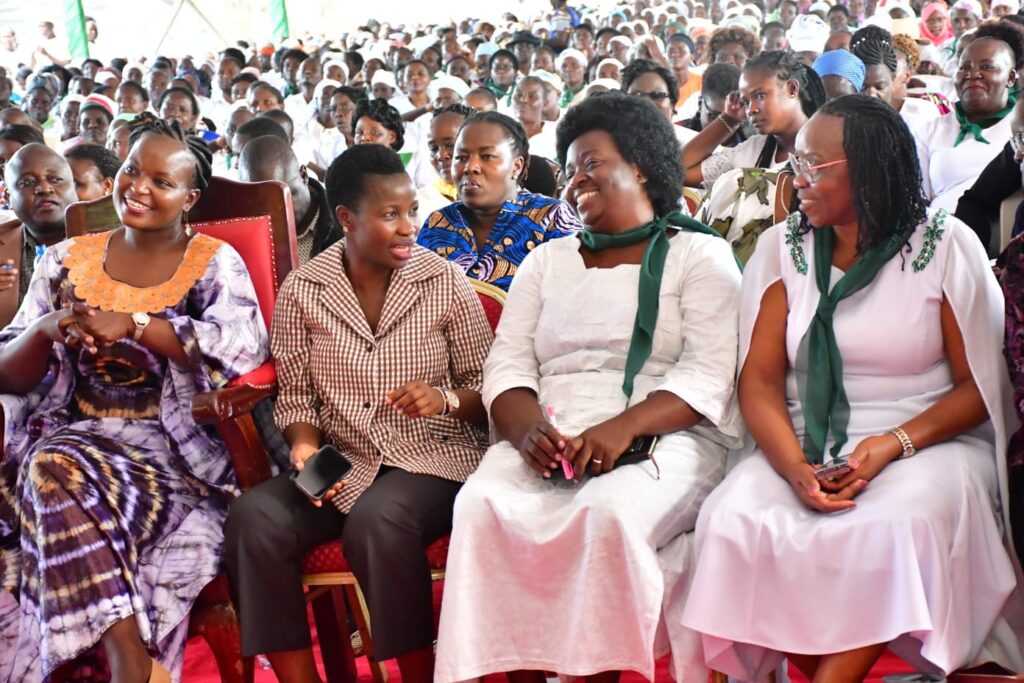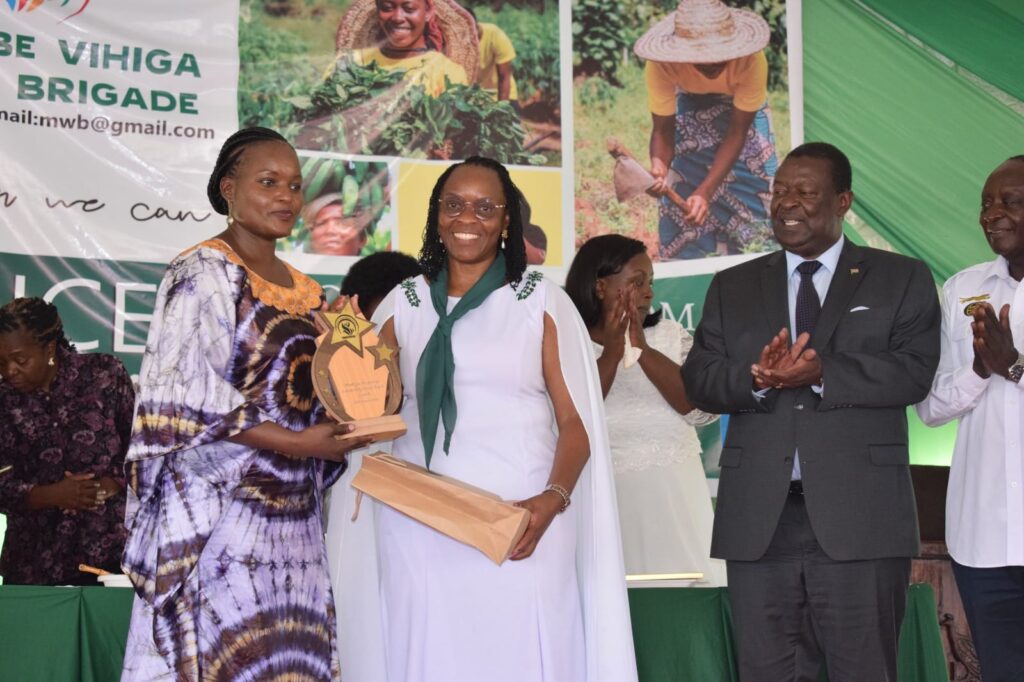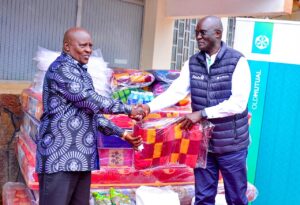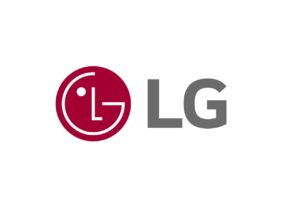A look into President Ruto’s Women’s Rights advisor’s at 1year

It is exactly one year since President William Ruto named his cabinet nominees after winning the 2022 general elections.
One of the new offices the President created is the Women’s Rights advisor office which is held by Harriette Chiggai who makes history as the first holder.
The creation of the office did not come as a surprise considering the President had made tens of attractive promises to Kenyan women and girls during the campaign.
Just before the elections, Ruto held a special Women Charter Conference at Nyayo Stadium where he pledged that his administration will be made of 50 per cent women.
He promised to foresee the implementation of the two-thirds gender, provide access to government procurement opportunities while ensuring that all women automatically qualify for funding.
He also promised Ruto to introduce a women’s rights agency to protect women from Gender-Based Violence (GBV).The August 2022 general election witnessed a positive shift in political participation and representation of women in Kenya. Female candidates made up an estimated 11% of the total number of candidates gazetted by the Independent Electoral and Boundaries Commission (IEBC).
The 2022 election also recorded an increase in the number of women vying for elective positions, which ultimately resulted in an increased number of women successfully elected. For instance, the number of female gubernatorial candidates increased from nine in 2017 to 22 in 2022. Out of these 22, seven women were elected as County Governors, representing a 32% success rate.
On September 27, 2022, President William Ruto unveiled his new Cabinet, which comprises seven women Cabinet Secretary Nominees out of 22, representing 32% of the cabinet. The President also appointed three other women to the Executive, including the Advisor on National Security, the Advisor on Women’s Rights and Agency, and the Secretary to the Cabinet, bringing the representation of women in the Executive to 39%.
This is an improvement from the 2017 Cabinet, which had a 30% representation of women. However, despite progress noted following the 2022 elections, women’s representation in the National Assembly and the Cabinet still fails to meet the Constitutional two-third

Has the Creation of the Women’s Rights and Agency office helped?
In February this year, Chiggai held a consultative forum with women leaders on the constitutional amendments bill on the two-thirds gender ruleShe spoke about the government’s plan to implement the two-thirds gender rule through a constitutional amendment.
She said that this can easily be achieved by working on Article 27(8) of the constitution which touches on the right to equality and a possible amendment to Article 97 which touches on the composition of Parliament.According to her, Article 97 has made parliament unconstitutional and promoted several litigations in court. Chiggai recognized that Closing gender gaps in leadership is key to achieving the 2030 Agenda for Sustainable Development, more so the achievement of gender equality and empowerment of women and girls.
The Women’s Rights and Agency office has so far been working hard to ensure Kenya achieves gender parity in top leadership positions.A study by IBM Institute revealed that the number of women in C-suite and board positions had gone below the global average, a trend Chiggai and team have promised to change.The study revealed that in the country, women at the C-suite level stood at 11 per cent and Board level at 10 per cent, this is below the global representation of 12 per cent for both C-suite and Board levels.
Even so, it noted that Kenya has a higher representation of women in junior professional/specialist roles at 41 per cent compared to the global average of 40 per cent.
Combating the interrelated challenges of HIV, gender-based violence, and adolescent pregnancy
Kenya has for long remained on course and committed to ending AIDS as a public health threat and addressing all forms of Sexual and Gender- Based Violence (SGBV) by 2030.
If there is one challenge Chiggai’s office will have to address is the high rate of adolescent pregnancies.In January, Chiggai revealed that she will help bring together all stakeholder and government entities related to the fight against the vices to develop and implement strategies for eliminating the triple threat; sexual gender-based violence, pregnancies and HIV among adolescents and young people.
“All this vices and especially teen pregnancy is a matter of concern in the country and as government we are determined to bringing the perpetrators to book. To achieve this, there is need for a concerted effort in dealing with the vice that is eating up our society,” she saidShe said the government will
continue engaging and offering support to women and adolescent girls in tackling and combating Gender Violence cases which are on the rise. Enhancing Financial Literacy among women and economic empowerment
In advancing the bottom up model on women Economic Empowerment, Chiggai attended the launch of an online training program on financial literacy for women and girls in the IGAD region in Addis Ababa.She promised to ensure mainstreaming of the same to ensure Kenya has many women who are financially literate and ready to design, manage and competitively compete within the business market.
The office has also helped launch new women economic blocs among them the Western Women Organization Under the banner,

“Enhancing Women Economic Empowerment “.Chiggai has occasionally challenged women to tap into their positive energy and improve themselves and shape the drive on economic empowerment within their regions.
“Women should create jobs and be part of the job creation drive by government,” she saysBeing a lawyer,Ciggai has challenged women lawyers in the country to be at the forefront in serving as an example to show the rest of the women how to prosper economically.A caucus group known as Women Lawyers In Finance has been leading discussions on how career women can break the glass ceiling and take the lead in the finance sector.Chiggai observes that the economic empowerment of women is a social transformation that requires full dedication from all institutions and citizens.“Women’s rights are crucial for a prosperous nation. Currently, women’s economic opportunities are limited, with 50% of working-age women in the labor force compared to 77% of men.
However, if women participated equally in the economy, global GDP could increase by 26%, equivalent to 12 trillion USD by 2025,”She says that it is also important to focus on digital Justice and the inclusion of Women in Tech to help break down barriers and challenge stereotypes.Let us ensure the digital age presents more opportunities, equity, and justice for all,”
In July, Chiggai graced the inaugural Women in Construction Forum which she said was a good starting point in shaping and accelerating the government agenda .





